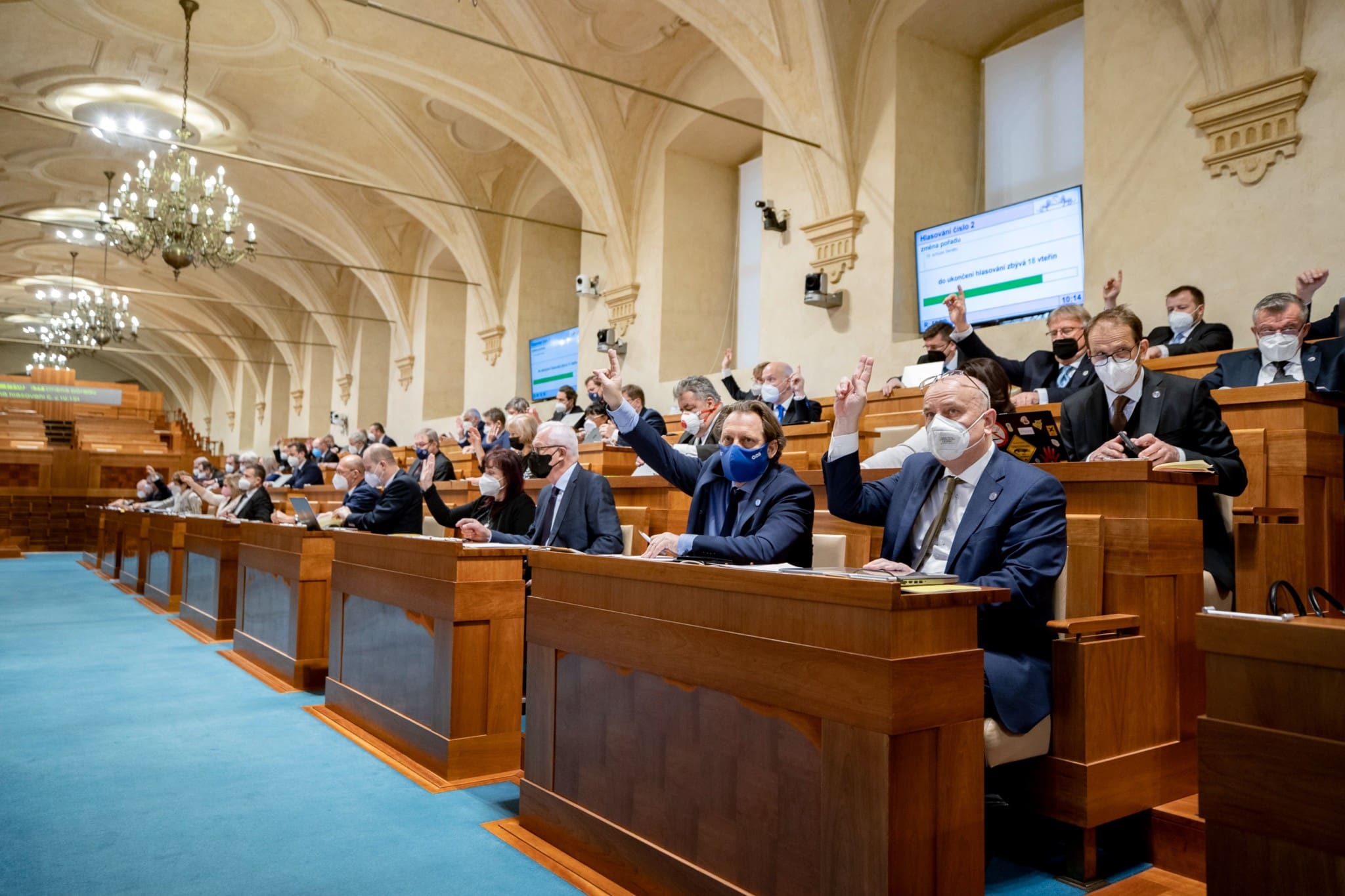The Czech Senate rejected an amendment to the pandemic law on Thursday that would have allowed the extension of comprehensive measures against Covid-19 until the autumn of this year.
The senators somewhat prolonged the process of its adoption by the Chamber of Deputies and increased the possibility of interfering with this brutal law, but the senate could hardly have done otherwise, even if most senators agreed with every letter of the amendment.
After all, it was the method chosen by the government to pass this law through legislative emergency that revealed its contempt for parliament, and on Thursday, the Minister of Health Vlastimil Válek especially contributed to this sentiment.
If the amendment does not pass, the minister suggested the government would need to declare a state of emergency on March 1. These words make absolutely no sense and thus indicate maximum disinterest in the factual discussion, which Válek then only underlined by playing cards on a mobile phone during the debate. This, of course, upset Senate Vice President Jan Horník and some other senators.
The threat of introducing a state of emergency in three weeks is senseless because the government justified the amendment to the pandemic law less than a month ago on the basis that the country may experience a return to high rates of infection come autumn, apparently in some more aggressive form. Until Thursday, there had been no talk that the new laws should apply immediately after the original pandemic law expired at the end of February.
The legal detail, of course, is that the promulgation of the emergency law does not mean that shops and schools will close or see restrictions on March 1. Like a pandemic law, it is “only” an opportunity to do so, but Válek, of course, used it politically. Under the phrase “emergency law,” we can immediately imagine tighter screws than they have been in the last few months. It is no coincidence that Prime Minister Fiala routinely presents the pandemic law as a softer tool.
Politically, Válek’s threat to the senators is futile, and if the Chamber of Deputies had not coincidentally voted back the senate’s veto, we would have seen it in less than three weeks. The current restrictions are relaxing, largely due to the Supreme Administrative Court (NSS), however, the government must ensure the will of the NSS is not ignored. The epidemic development — a dizzying number of positive tests with a stable, low number of patients in the ICU — could hardly be better. Válek’s slapdash threats are standing out for their arrogance and grasping for power that has defined his tenure during the pandemic.
We have reached an interesting inflection point. The pandemic is coming to an end as the protests against coronavirus restrictions finally begin to reach a global scale. It is not just convoys of Canadian truck drivers that are imitated in different ways around the world. In the United States, high school students participating in marches without prescribed face masks are beginning to multiply. In Germany, in hundreds of cities and towns, there are quiet protest known as “walks.”
That the Omicron variant has caught up with this long-suppressed so-called people’s anger, but it may mean that the establishment will eventually take only one lesson away after these two long years: the people have endured a lot. This must be an extremely essential piece of knowledge for them. The constant warnings about populism which we have been subjected to for about seven years — namely with the migration crisis, Brexit, and Trump — has, in essence, simply been from the beginning an expression of fear that people are upset about mass immigration, inflation, and, of course, climate policy. In this situation, after two years of the pandemic, every little effective act of resistance that the Czech Senate has shown is important.





